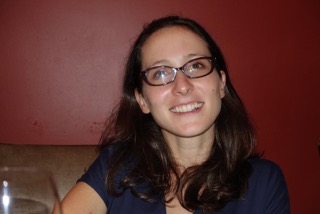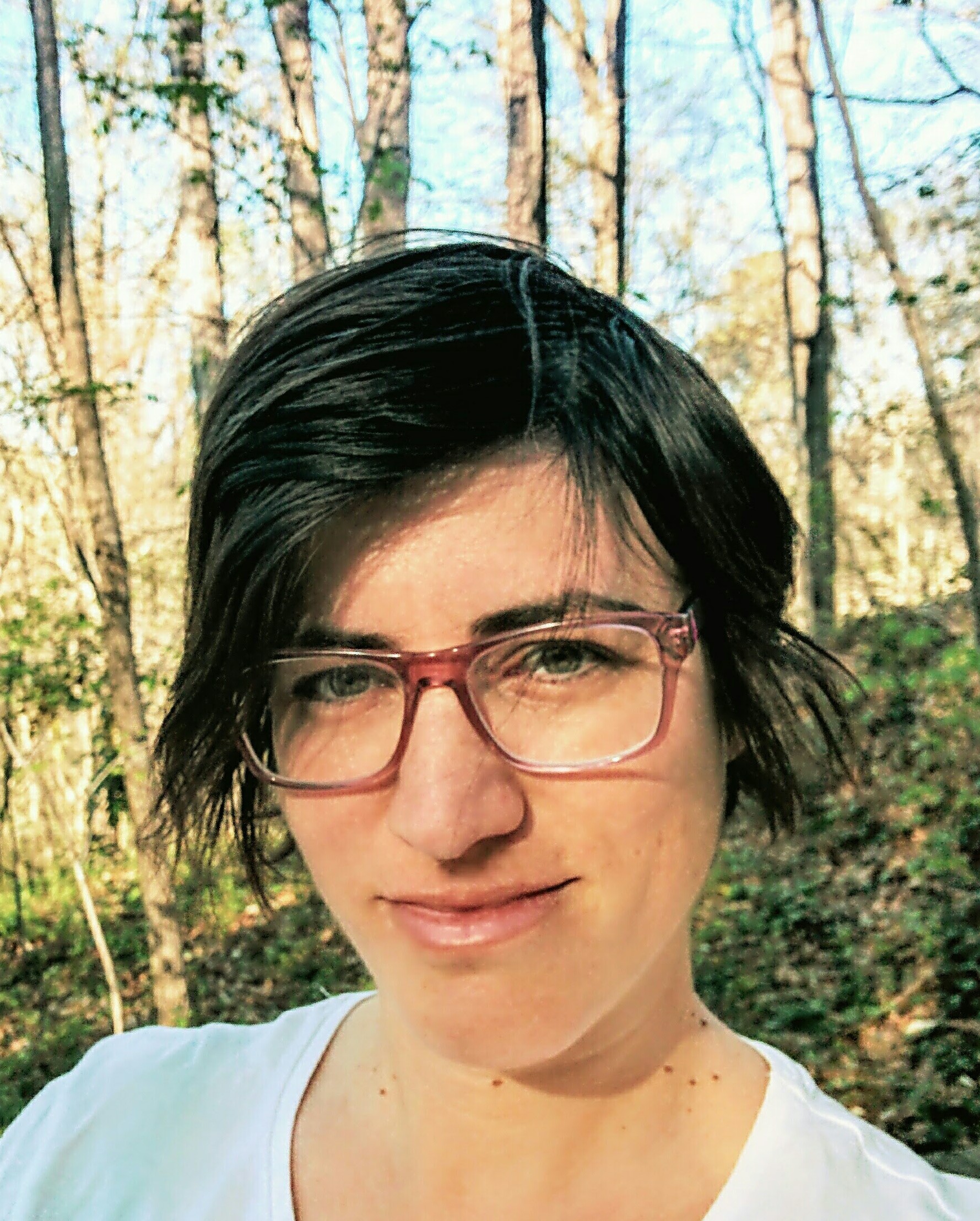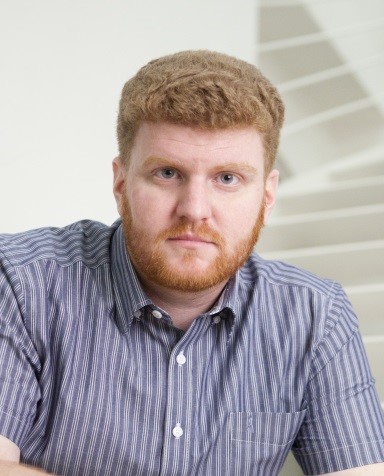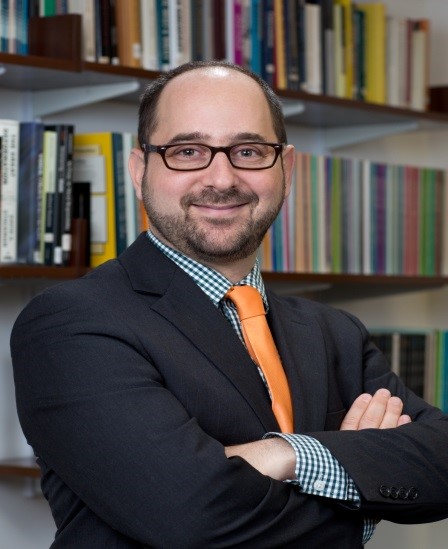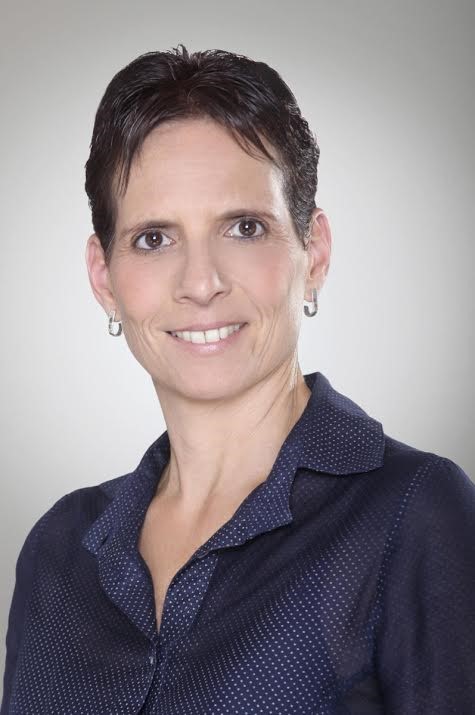Previous Fellows Academic Program
Post – Doctorate Fellowship 2017-18
|
Erez Lior |
|
|---|---|
 |
Dr. Lior Erez is a political theorist, specializing in the intersection between the ethics of international relations and the ethics and politics of citizenship. The three main themes that shape his research are (i) national identity and civic republican citizenship; and (ii) the role of civic motivation in political theory, and especially in normative theories of international justice; (iii) the structure of dilemmas in international politics. He received his PhD from University College London in 2015, where his thesis developed a novel argument about the role of motivational constraints in liberal cosmopolitan theory, focusing on the distinctly political role of civic motivation. Lior holds a BA in History and Political Science from Tel Aviv University and an MPhil in Political Thought and Intellectual History from the University of Cambridge. Prior to joining the Edmond J. Safra Center for Ethics, he was a teaching associate in Ethics and World Politics at the University of Cambridge, and a Max Weber Postdoctoral Fellow at the European University Institute in Florence, working on republican citizenship and the problem of dual nationality. His research as a Safra Fellow will explore the ethics and politics of the selling of citizenship. |
|
Friedman Rachel |
|
|---|---|
|
|
Rachel Friedman received her B.A. in Social Studies, her J.D., and her Ph.D. in Government, all from Harvard University. Her dissertation, written under the supervision Professors Harvey Mansfield, Michael Sandel, and Richard Tuck, explores the origins and evolution of the idea of social insurance, specifically as it relates to mathematical probability theory. While at the Safra Center she will also be a Fulbright post-doctoral fellow, pursuing a research project on Israel’s welfare state and the challenges of universal social insurance. |
|
Gorin Nily |
|
|---|---|
|
|
Nily Gorin’s research focuses on intersections of gender, ethics and mobility in contemporary China. She pursued her Ph.D. at the Hebrew University of Jerusalem, where she received the Polonsky Scholarship for Outstanding Doctoral Candidates. Her dissertation draws on ethnographic fieldwork among Chinese migrant workers, conducted in Israel and in China, to examine linkages between moral frameworks, gender dynamics and transnational transformations of intimate life. During her fellowship year, she intends to further her research on how marketization and migration are transforming notions and practices of love and marriage in China by focusing on “temporary marriages” (linshi fuqi) – that is, long-term extramarital relationships among migrant workers – and public discussions surrounding them. Nily holds a B.Sc. in Physics and an M.A. in Asian Studies (magna cum laude) both from the Hebrew University. She combines her academic research with social activism and has been engaged in volunteer work with Chinese migrant workers and victims of trafficking for over a decade. She has been involved with several non-governmental organizations on migrants’ rights and also served as a Chinese migration consultant to various government agencies. |
|
Habib Javier |
|
|---|---|
|
|
Javier is a private law theorist. He studied law in the National University of Tucumán, Argentina and history of private law in the University of Salamanca, where he obtained an LLM equivalent (“Grado de Salamanca”) with the thesis “The will as a source of obligations”. In 2010 Javier moved to Florence to do an LLM in Comparative, European and International laws at the European University Institute. There he met Prof. Dennis Patterson, who offered him a doctoral position. As a PhD researcher, Javier made two long research missions, one in 2013 to The University of Toronto Faculty of Law (to study with prof. Peter Benson) and another in 2015 to the Max Planck Institute of Hamburg. Javier defended his PhD “The Methodology of Private law” in May 2016 before an international panel constituted by Profs. Dennis Patterson, Hans-W Micklitz, Ernest Weinrib and Roger Brownsword. Javier’s interests are mainly three: first, the distinctiveness of private law in relation to other normative discourses, like public law, human rights, virtue ethics and the law of economics; secondly, the possible responses of private law to the issue of economic inequality; and third, corrective justice doctrines as the best possible law for conflicts between equally powerful actors interacting in spaces without authority. He is also interested in the common law judicial reasoning and in investigating the possible contributions of the individualist strand of anarchist theory to the theory of autonomous private law. |
|
Hirsch Roni |
|
|---|---|
|
|
Roni Hirsch received her PhD in Political Science from UCLA (2017), with a concentration in political theory and the history and philosophy of science. In the Spring of 2017, she served as a research fellow at the Center for the History of Political Economy at Duke University. Roni’s work traces the normative implications of the transition from a political economy of private property to one of risk. In particular, she studies the intellectual and regulatory debates in the interwar years, primarily in the USA, as a pivotal moment in this broader history. At the Safra Center, she will be working on a book manuscript entitled "The Price of Risk and the Politics of Responsibility." The book will trace the market approach to risk management throughout its modern history, from the work of Adam Smith to interwar dynamic economics and early financial models of the 1940s and 50s. In addition, the book will read contemporary theories of justice in light of this historical analysis and ask how the distribution of social ‘negatives’—from environmental degradation to financial fragility—compounds the effects of income inequality. |
|
Inbar Avner |
|
|---|---|
|
|
Avner Inbar earned his PhD in the Committee on Social Thought at the University of Chicago. His dissertation presented an interpretation of the role of political psychology in the philosophy of Jean-Jacques Rousseau. Avner’s research interests are in the history of moral, social and political philosophy, especially in the 17th and 18th centuries, as well as in contemporary political theory. His research as a postdoctoral fellow at the Safra Center focuses on the discovery of the threat to social unity and the common good by “positional concerns” - i.e., concerns about relative status –and its implications for the early conceptualization of commercial society. |
|
Sheffi Nofar |
|
|---|---|
|
|
Nofar Sheffi is currently completing her doctoral studies at Sciences Po Law School, Paris. Her dissertation, Jurisdiction Rehashtagged: Five #Reviews on/of Law in a Virtual Reality, explores the operation of digital computers, computer networks, and online marketplace platforms, namely Airbnb. Nofar holds a Bachelor’s degree in Law and Political Science from Tel Aviv University, a Masters of Arts in Social Sciences (German Studies) from the Hebrew University of Jerusalem, and a Master of Laws (Legal Theory) from the New York University School of Law. In addition to the theory of contract, her main research interests include critical theory, the philosophy of law, the political and social theory of law, literature theory, architectural theory, and art theory. Her research as a postdoctoral fellow at the Safra Center investigates the auto-constitutionalization of online marketplace platforms, discerning the rise to dominance of a new political grammar. This generalizable model of functioning, she claims, is underpinned by a reformulation of social contract theory, and institutes a new paradigm of citizenship and political participation. |
Harvard Exchange Program 2017-18
|
Perry Tomer |
|
|---|---|
|
|
Tomer Perry is a political theorist. He received his PhD in Political Science from Stanford University in 2016. Tomer's primary research interests are in democratic theory and global justice but he also engages various topics such as nationalism and sovereignty, ancient political thought, ethics pedagogy and game design. Tomer's work responds to the contemporary crisis of democracy - from the deterioration in democratic standards and brake down of new democracies to declining trust in democratic ideas and institutions - by revisiting fundamental tenets of democratic theory. Tomer argues that democracy is better understood as a theory of justice rather than legitimacy, which means that democratic demands are more urgent and stringent than is accounted for in most liberal theories. Centering on the need to regulate social power, democracy as a theory of justice has implications beyond the state or political decision-making. To make democracy relevant to contemporary global politics, Tomer proposes a democratic solution to the question of boundaries on the basis of the all-affected principle, which also has implications for issues such as migration regimes, definitions of citizenship and the moral status of sovereignty. Lastly, Tomer argues that democratic theory is not a parochial value but is relevant to the global society by offering an account of global public reason that grounds a theory of human rights as membership in the global political system. |
Continuing Fellows 2016-18
|
Horowitz Adam |
|
|---|---|
|
|
Adam L. Horowitz received his Ph.D. in Sociology from Stanford University in 2016. Horowitz’s scholarship is situated in the relationship between technology, bioethics, and policy, with particular focus on how genetic technologies are changing the nature by which ethnoracial membership is evaluated. Horowitz’s dissertation research evaluated Jewish converts’ use of genetic ancestry testing (GAT) in conceptualizing authentic Jewishness. By drawing connections between converts use of GAT and how GAT has been adopted into global citizenship politics (i.e., as an evaluable metric used for determining access to national and/or tribal membership), Horowitz advances understanding of how genetic technology is altering the social dynamics of ethnoracial claims-making and, as it becomes encoded into enforceable policy, affecting legal and political rights. In new research, Horowitz is studying people who discover relatives of different races through GAT, examining how increasing use of genetic technology influences social perceptions of relatedness and of the extent to which ethnoracial difference is essential. |
|
Shadmy Tomer |
|
|---|---|
|
|
Tomer Shadmy completed her direct track Ph.D. at the Tel Aviv University faculty of law, where she also received her LL.B. (magna cum laude, with honors). Her dissertation, “The Era of Responsibility: The Concept of Duty in the Human Rights Discourse”, explores new tools of human rights regulation, and reveals their philosophical premises. Tomer was a fellow at the Program on Corporate Governance, Harvard Law School, and post-doctoral fellow at Bar-Ilan University, where her research focuses on Global law and Corporate Social Responsibility. In addition, Tomer was a visiting researcher at Sciences Po, Paris; a Research Fellow at The Israel Democracy Institute; a fellow at the “GlobalTrust” research project, and recipient of the Dan David prize Scholarship, the Buchmann Scholarship for excellence in advanced legal studies, and the French Embassy’s Fellowship. Her research as a postdoctoral fellow at the Safra center focuses on rights and political participation in cyberspace. Tomer investigates how online social media corporations transform the notions of sovereignty, human subjects, and rights. |
|
Shmuely Shira |
|
|---|---|
|
|
Shira is researching the intersection of law and science (and in particular the regulation of medical practice); history of pain; environmental history; and human-animal relations. Her book manuscript examines notions of pain undergirding the regulation of vivisection in nineteenth-century Britain. She is currently working on the project "The Capable Creature", which examines the transformations in the moral and legal status of non-human primates in the course of the twentieth-century. In another project, she explores the use of muscle relaxants in animal experimentation and capital punishment. Shira holds a PhD from Massachusetts Institute of Technology and LL.B and LL.M degrees from Tel Aviv University Faculty of Law. Shira's dissertation project was supported by the National Science Foundation (NSF STS), and she is a recipient of the Mellon-CES Dissertation Completion Fellowship. |
Doctorate Fellowship 2017-18
|
Bloom Ora |
|
|---|---|
|
|
Ora Bloom is a Ph.D. Candidate at the Zvi Meitar Center for Advanced Legal Studies. Her dissertation deals with innovative shared equity homeownership models. Ora obtained her LL.B. from Bar-Ilan University, and her LL.M. (cum laude) from Zvi Meitar Center. She holds a Philosophy and Literature B.A (cum laude) from Tel-Aviv University. Ora was the director of the Affordable Housing Center at the Faculty of Law in Tel Aviv University and the clinical and academic instructor of the Housing Clinic. |
|
Faust Abigail |
|
|---|---|
|
|
Abigail Faust is a PhD Candidate at the Zvi Meitar Center for Advanced Legal Studies, Tel-Aviv University Faculty of Law. Her dissertation explores the historical and normative relations between bankruptcy law and consumer credit regulation in the United States. Abigail is a graduate of the Interdisciplinary Program for Outstanding Students at Tel-Aviv University. She obtained her LL.B (cum laude) and LL.M (summa cum laude) from Tel-Aviv University Faculty of Law and served as an editor of the Tel-Aviv University Law Review. Abigail clerked for Israeli Supreme Court Justice Ester Hayut. After her admission to the Israel Bar Association (2012) she became an associate at the litigation practice of Fischer Behar Chen Well Orion & Co. Her research interests include private law theory, political philosophy and political economy. |


